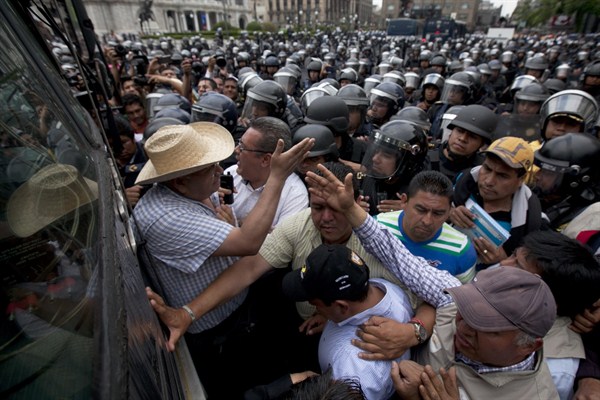The ongoing fight over education reform in Mexico has often resembled a popular uprising rather than a labor dispute. Over the past two years, members of a powerful teachers’ union from the south of the country have occupied plazas, hijacked local radio stations and disrupted elections in their bid to have a controversial 2013 bill restructuring Mexico’s public school system revoked.
The clash between union leaders and the federal government has defined much of President Enrique Pena Nieto’s time in office, as he has pursued an ambitious reform agenda that has stalled under corruption allegations and popular unrest, mostly over the brutal death of 43 students at the hands of police and a local drug cartel. But the education battle also reflects underlying issues of patronage politics and the devolution of power since Mexico’s democratic transition began in the 1990s.
One of several key reforms approved by the Mexican Congress in 2013 and 2014 as part of Pena Nieto’s much-touted, cross-party “Pact for Mexico,” the education reform aimed to standardize the quality of teaching in the country’s public schools, which have long been hamstrung by corrupt labor unions and their political allies. Those problems date to the patronage system constructed by Pena Nieto’s own Institutional Revolutionary Party (PRI) during its original seven decades in power, going back to 1929. Beginning in the 1940s, the head of the National Syndicate of Education Workers (SNTE) vowed to mobilize votes on behalf of the PRI in exchange for immunity from prosecution—a sign of the clientelism that pervaded Mexican society at the time.

